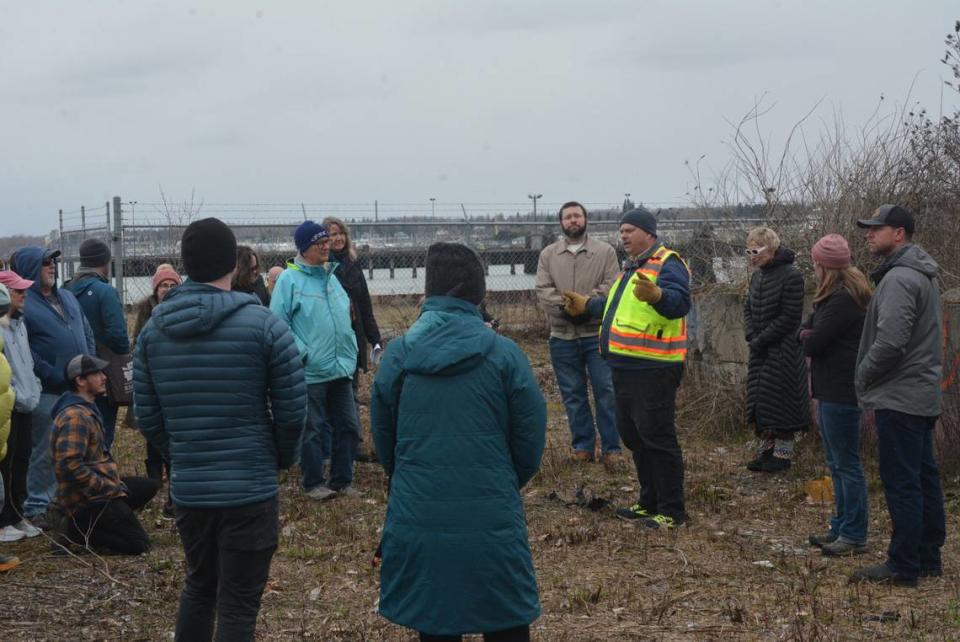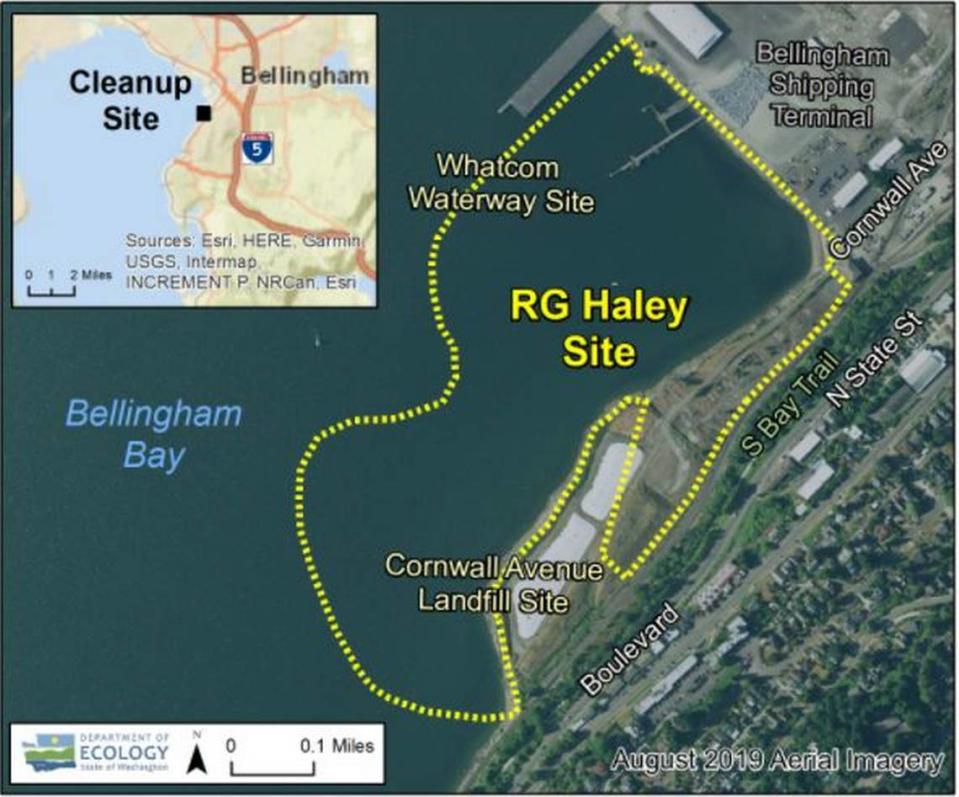New Bellingham park could be a ‘gem’ on the waterfront. But first, a toxic cleanup
A long-planned cleanup at a former industrial site and landfill on the Bellingham waterfront will begin soon, in anticipation of a new park that is expected to become a popular bayside attraction.
It’s commonly known as the RG Haley site for the company that last used the land south of where Cornwall Avenue dead-ends at the shoreline, a 17-acre tract stretching all the way to Boulevard Park.
Visitors can look across Bellingham Bay at Lummi Island, the Lummi Peninsula and downtown Bellingham, and see epic sunsets.
Before European settlers arrived, the land was an expansive mudflat and the native Lhaq’temish, or Lummi, people gathered food there and used the site for spiritual ceremonies.
Anthony Watkins of Bellingham joined about 70 people last week for a tour of the site, where officials explained the cleanup process and outlined plans for parking, trails, beach access and eventually restrooms and possibly a food concession at what will be called Salish Landing.
“When the park is developed, I’ll probably be down here a lot,” he told The Bellingham Herald in an interview.
Cleanup is expected to cost $28.3 million, Craig Mueller, the city’s project engineer, told The Bellingham Herald. An update on the site cleanup and the Salish Landing project is on the agenda for the next City Council meeting o Monday, March 11.
Bellingham and the Port of Bellingham agreed to share the cleanup cost under a consent decree with the state Department of Ecology.
RG Haley International treated wood products using creosote and diesel fuel until 1956, and chemicals leached into the ground and Bellingham Bay, where lush eelgrass meadows provide cover for young fish, including salmon, in the shallow water near the shore.

Gem of the parks
“This site has the potential to be a gem of the park system. You’ll be able to park and walk and access the beach,” Mueller said during the tour.
“This is something that has been in the works for a very long time. It’s going to be much more connected to the downtown. This site is so big, it’s going to change the way we think about the shoreline,” Mueller told the tour participants.
A landing for kayakers is also possible, and officials are studying how to connect the park to the South Bay Trail and Boulevard Park.
But first, there’s the cleanup, which could take an estimated four years as contaminated soil is removed and about 20 acres of adjacent seabed in Bellingham Bay is capped.

Thinking about the future
The Bellingham-based environmental group RE Sources sponsored the tour, which featured curious local residents and experts from the state departments of Ecology, Fish and Wildlife and others who explained the cleanup plan and described the site’s importance to the ecosystem.
Participants walked along a broken asphalt path amid litter, scraps of shells eaten by gulls, and graffiti-covered Jersey barriers. The site is dotted with invasive blackberry canes and scattered trees that are gnarled against the ever-present onshore wind.
“I love to think about the future of this waterfront and where it’s going to be in 100 years,” RE Sources board member Ted Wolf told The Herald.
Janet Higbee, who recently returned to her hometown of Bellingham after several years away, said she hopes the city will preserve the land as it exists as much as possible.
“I’ve lived away and I’ve come back, and I’m concerned for my two grandkids. I wish (the city) would do it judiciously and respect what nature’s done,” Higbee said.

